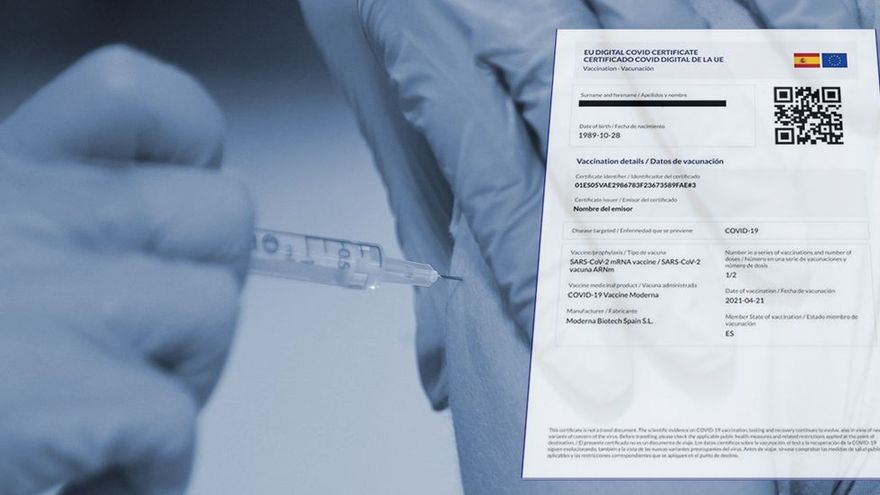The covid certificate promoted by the EU to facilitate travel officially comes into force today, coinciding with the start of the second summer season of the pandemic, with more than 3.2 million of these passports having been issued in Spain by the autonomous communities and the Ministry of Health.
The idea of launching this scheme was put forward by Greece at the beginning of the year with the intention of reviving this summer’s tourist market, after the slump in the sector a year ago, and the “digital green certificate”, as it was called, was finally approved on 20th May 2021 as a single framework in this area to be applied as of 1st July in all Member States.
This simple, free, universal, secure and reliable tool, as presented by the Ministry of Health, seeks to facilitate free movement within the EU, guaranteeing non-discrimination and strict respect for the fundamental rights of EU citizens.
It is available digitally or on paper and is synthesised in a digitally signed QR code, which contains information -also in English- about whether the holder has received the full course of any covid-19 vaccine authorised by the European agency EMA or WHO -“a vaccination” certificate-, is immunised from past infection -a “recovery” certificate- and/or has a recent negative test (PCR or antigen test within the last 48/72 hours) -a “test” certificate-.
In Spain, which brought forward the launch of the certificate to 7th June, it is issued by the autonomous regions and the Ministry of Health, the latter only in the case of having had the disease or having been vaccinated.
Between the Ministry and the autonomous communities, 3,217,507 certificates have already been issued in Spain, as reported on Monday by the Secretary of State for Health, Silvia Calzon, who added that “there are already twelve communities issuing the three models and seven that issue those for test and recovery”.
By region, according to information provided to EFE by the various regional governments, Catalonia has issued 681,600 certificates, Andalusia 462,934, Galicia 255,423, Castilla y León 224,354, the Basque Country 127,500, Aragón 82,618, Castilla-La Mancha 80,000, Navarra 61,606, Extremadura 47,761, Murcia 40,000, Canarias 34,000, Cantabria 27,700, Baleares 15,290, La Rioja 13,897, Asturias 3,426, Melilla 5,199 and Ceuta 4,600.
The Community of Valencia has not provided a total figure, although it has indicated that in the first 48 hours after launching the system it had registered 31,459 downloads, and the Community of Madrid has indicated that it will officially begin issuing covid passports this Thursday, with the opening of several points where it will be possible to process them in person after a pilot test of few days processing applications telematically.
In the autonomous communities the situation varies. For example, some, such as Aragón, the Community of Valencia and Extremadura began to issue the certificate on 7th June; Catalonia did so on 8th June; the Balearic Islands telematically from 10th June and in person at 7 points on the islands from 14th June; in Ceuta from 16th June; in Castilla-La Mancha they began on 18th June and in Cantabria on 21st June.
Communities such as the Basque Country, which until now have issued certificates telematically, will also begin to do so in person as of tomorrow.
From the data provided to EFE by the Ministries of Health, it is clear that the vast majority of passports are in the vaccination category, as in Galicia, with more than 98%; in Extremadura, with close to this figure; in Catalonia, with more than 96%; in Castilla y León, with almost 95%; and in La Rioja, with more than 92%.
Moreover, as regards its use, the Govern Balear has pointed out that it is already accepting the covid certificate for entry to the islands.
The Government of the Region of Murcia requested in an inter-territorial meeting a fortnight ago that the Ministry of Health pools vaccination data with all communities because people who were vaccinated away from their place of residence cannot receive the passport in this way, as in the case of essential personnel working temporarily outside their usual place of residence, according to the regional executive.

